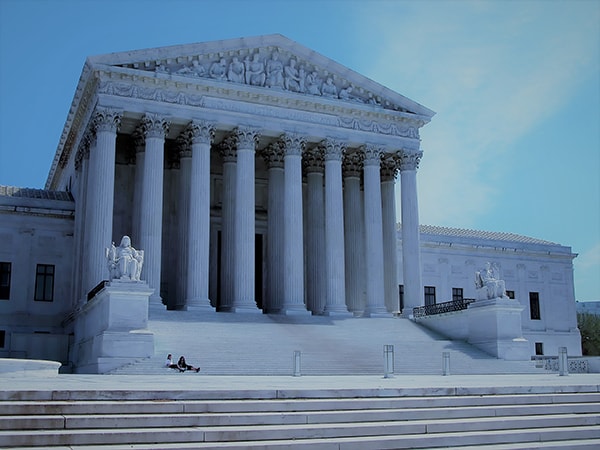Why Work With a Federal Crime Attorney: Secure Your Legal Rights with Expert Legal Aid
Wiki Article
Debunking the Refine of Federal Appeals: What You Need to Know
Browsing the detailed world of government charms can frequently look like going across uncharted waters for those strange with the procedure. Understanding the nuances of appellate court jurisdiction, the complexities of filing a notice of allure, providing an engaging brief, and making an influential dental disagreement are vital parts that can dramatically impact the result of an instance. By deciphering the layers of complexity bordering federal appeals, individuals can get a more clear understanding into the devices that govern this critical point of the lawful system.Comprehending Federal Appeals Refine
Diving right into the complex world of the government charms procedure unveils a methodical and structured journey via the judicial system. Federal allures function as a vital mechanism for evaluating choices made by lower courts. Comprehending this procedure is important for any person associated with lawful process at the government level.The procedure typically starts with an event disappointed with a lower court's judgment submitting a notification of appeal. This sets off a testimonial by a greater court, where a panel of courts examines the lawful debates offered by both events. Briefs laying out the legal reasoning behind each party's position are submitted, and oral debates may be heard to clarify intricate concerns.
The appellate court's decision is based on a thorough evaluation of the reduced court's process and the disagreements offered. When the appellate court gets to a decision, it can attest, turn around, remand, or customize the lower court's judgment, giving clarity and finality to the legal disagreement.
Appellate Court Jurisdiction Discussed
Appellate court territory refers to the extent of instances that a certain appellate court has the power to choose and assess upon. Unlike test courts that listen to instances for the first time, appellate courts are limited to examining choices made by reduced courts.Appellate courts have territory over particular kinds of situations, commonly those entailing lawful errors, procedural concerns, or inquiries of law as opposed to accurate conflicts. The jurisdiction of appellate courts is generally described in statutes and laws that regulate the court system. Understanding appellate court territory is crucial for celebrations associated with the appeals procedure as it identifies whether a case is qualified for testimonial and the level to which the appellate court can interfere in the lower court's decision.
Filing a Notification of Allure
The first step in beginning the government allures procedure involves filing a Notice of Appeal with the suitable appellate court. This crucial document formally informs the court and the various other events associated with the instance that the appealing celebration means to seek a review of the lower court's decision. Submitting a Notification of Charm is a strict step-by-step demand that establishes the appellate procedure moving.
When preparing the Notice of Allure, it is vital to ensure conformity with the details policies and guidelines of the appropriate appellate court. federal crime attorney. The file needs to commonly consist of info such as the situation name, the reduced court's name, the day of the judgment being appealed, and a concise declaration indicating the grounds for the appeal

Briefing and Dental Argument
In the appellate process, providing written briefs and involving in dental debates play essential duties in supporting for the appealing event's position prior to the appellate court. Briefs are extensive lawful records that lay out the parties' arguments, legal authorities, and evaluation sustaining their positions. These created submissions supply the court with a comprehensive understanding of the realities of the case, the pertinent regulation, and why the appealing celebration believes the reduced court's decision need to be rescinded.Adhering to the entry and review of the briefs, oral debates provide the celebrations a possibility to more clarify their positions, deal with any type of concerns the appellate courts may have, and emphasize bottom lines from their composed briefs. Dental arguments are a chance for the attorneys to encourage the courts with spoken advocacy and reactions to inquiries from the bench.
Both the composed briefs and dental disagreements are essential components of the appellate procedure, allowing events to provide their situation completely and compellingly before the appellate court. - federal crime lawyer
Receiving the Appellate Court Decision
The appellate court's choice is normally provided in a written format and details the court's final thoughts on the legal concerns provided, the reasoning behind their choice, and the judgment made. The time framework for receiving the appellate court's choice can vary, but courts aim to supply timely resolutions. Whether the appellate court attests, turns around, or remands the lower court's decision, recognizing the ramifications of the judgment is vital for all events included in the appellate procedure.Conclusion
Finally, the government appeals process is a complex however crucial action in seeking justice. Comprehending the appellate court jurisdiction, filing a notification of allure, preparing briefs, and providing dental arguments are all important components of this process. Ultimately, getting the appellate court choice can supply clearness and resolution to lawful conflicts. It is very important to navigate the government allures procedure with persistance and focus to information to accomplish a fair result.As we proceed from recognizing the federal appeals procedure to dissecting the ins and outs of appellate court jurisdiction, a basic aspect comes to light concerning the authority and limits of visit the website these greater courts in the legal landscape. Appellate court jurisdiction refers to the scope of instances that a particular appellate court has the power to assess and choose upon. Unlike trial courts that listen to cases for the very first time, appellate courts are restricted to reviewing decisions made by reduced courts. Comprehending appellate court jurisdiction is essential for events included in the allures procedure as it determines whether a situation is qualified for review and the degree to which the appellate court can intervene in the lower court's choice.

Report this wiki page